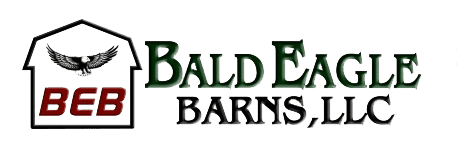JESUS IS COMING SOON!
The Best Insulation Options for Your Shed, Garage, or Cabin
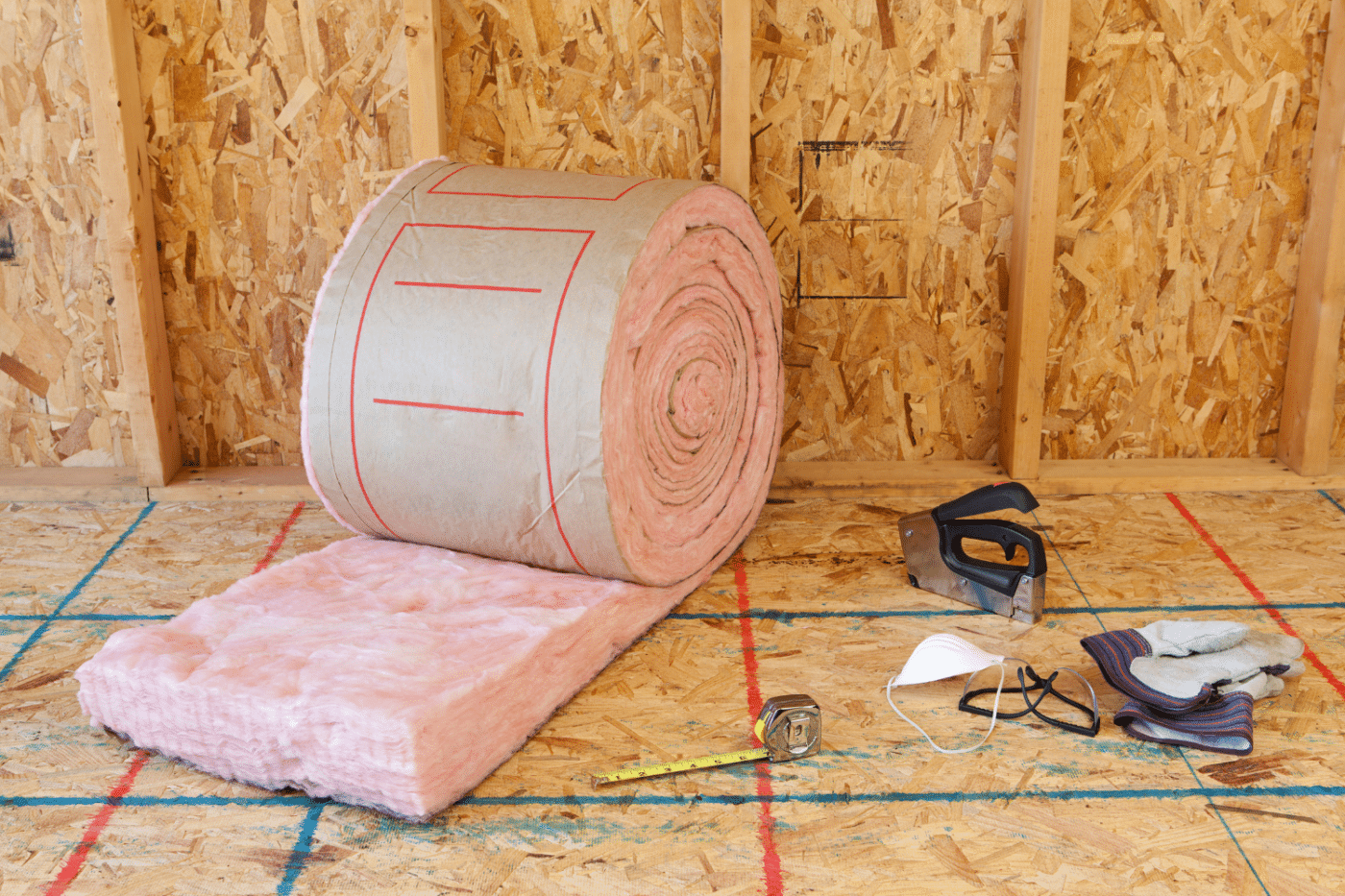
Imagine stepping into your shed, garage, or cabin and feeling cozy warmth in the winter or refreshing coolness on a hot summer day. Insulating these structures can transform them from uncomfortable, drafty places into sanctuaries where you actually want to spend your time. In this guide, you’ll discover that the best insulation can make your favorite getaway feel like a true retreat, no matter the season.
The 4 Best Insulation Options for Your Portable Structure
1. Radiant Barrier Insulation
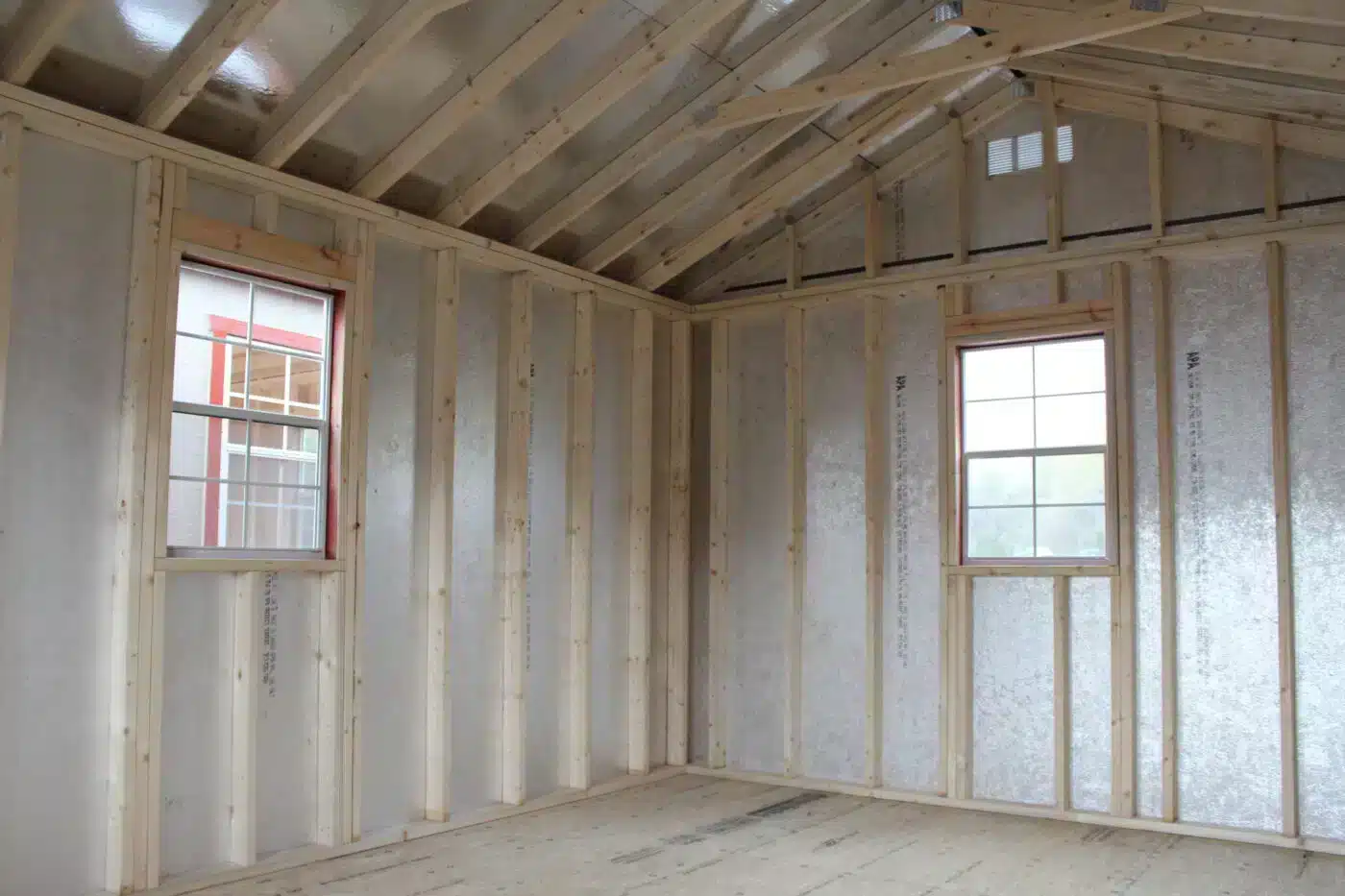
Radiant barrier insulation is an excellent choice for sheds in hot climates, where beating the heat is priority number one. Rather than absorbing heat like other types of traditional insulations, radiant barriers work by reflecting the heat away, helping to keep your shed, garage, or workshop much cooler on those scorching summer days. Radiant barrier is super effective for portable buildings located in the South, where extreme cold usually isn’t a concern.
Radiant barriers are lightweight and easy to install, making them an extremely cost-effective solution for structures that don’t need heavy-duty insulation. They’re usually installed in attics or under roofs, acting as a shield against the sun’s relentless heat. Because it’s commonly installed on the underside of roofs, you may also see this type of insulation called radiant barrier roof decking. For those living in the South, radiant barriers are a game-changer, turning spaces that feel like ovens into comfortable, usable environments year-round. If heat is your main concern, radiant barrier insulation could be the perfect choice to stay cool in your shed or garage without breaking the bank!
At Bald Eagle Barns, we offer radiant barrier roof decking as one of our many custom shed options. Our radiant barrier reflects 97% of the sun’s heat, keeping your structure up to 20 degrees cooler in the summer sun. We can attest to the fact that this is the most cost-effective option for keeping your structure as cool as can be.
2. Spray Foam Insulation
Spray foam insulation, also known as spray insulation, is a high-performance insulation option that provides excellent insulation while sealing air gaps, creating a more comfortable and energy-efficient space. Unlike other types of insulation, spray foam is sprayed onto walls and ceilings in a liquid form and then rapidly expands as it dries, ensuring a tight seal that keeps the elements out and the temperature steady inside. Whether you’re insulating a cabin, workshop, or shed, spray foam is a great insulation option.
There are two main types of spray foam or spray-on insulation to choose from: closed-cell and open-cell.
Closed-Cell Spray Foam
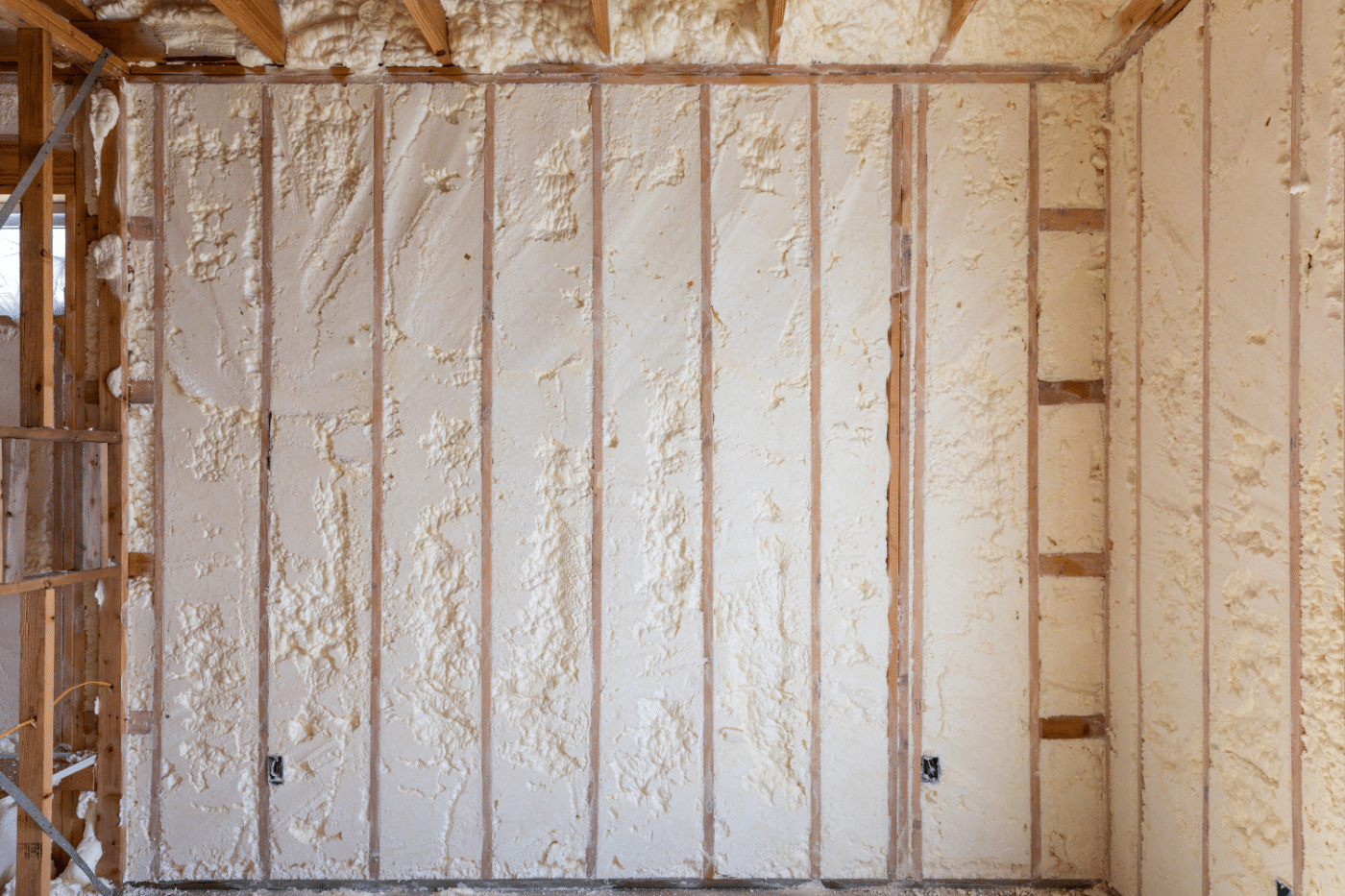
Closed-cell spray foam is the more premium spray foam insulation option, offering a very high R-value and a moisture-resistant barrier that is perfect for structures that need heavy-duty insulation. The closed-cell structure is designed to trap gas bubbles, making it dense and highly effective at blocking both heat transfer and moisture infiltration. In addition to insulating, closed-cell spray foam insulation also adds structural strength to the building, making it an excellent choice for areas exposed to harsh elements or that require extra durability.
Closed-cell spray foam could be ideal for cabins, barns, and other structures that face extreme weather conditions or need extra moisture control. It’s perfect for spaces that require year-round temperature control and would benefit from high energy efficiency.
Open-Cell Spray Foam
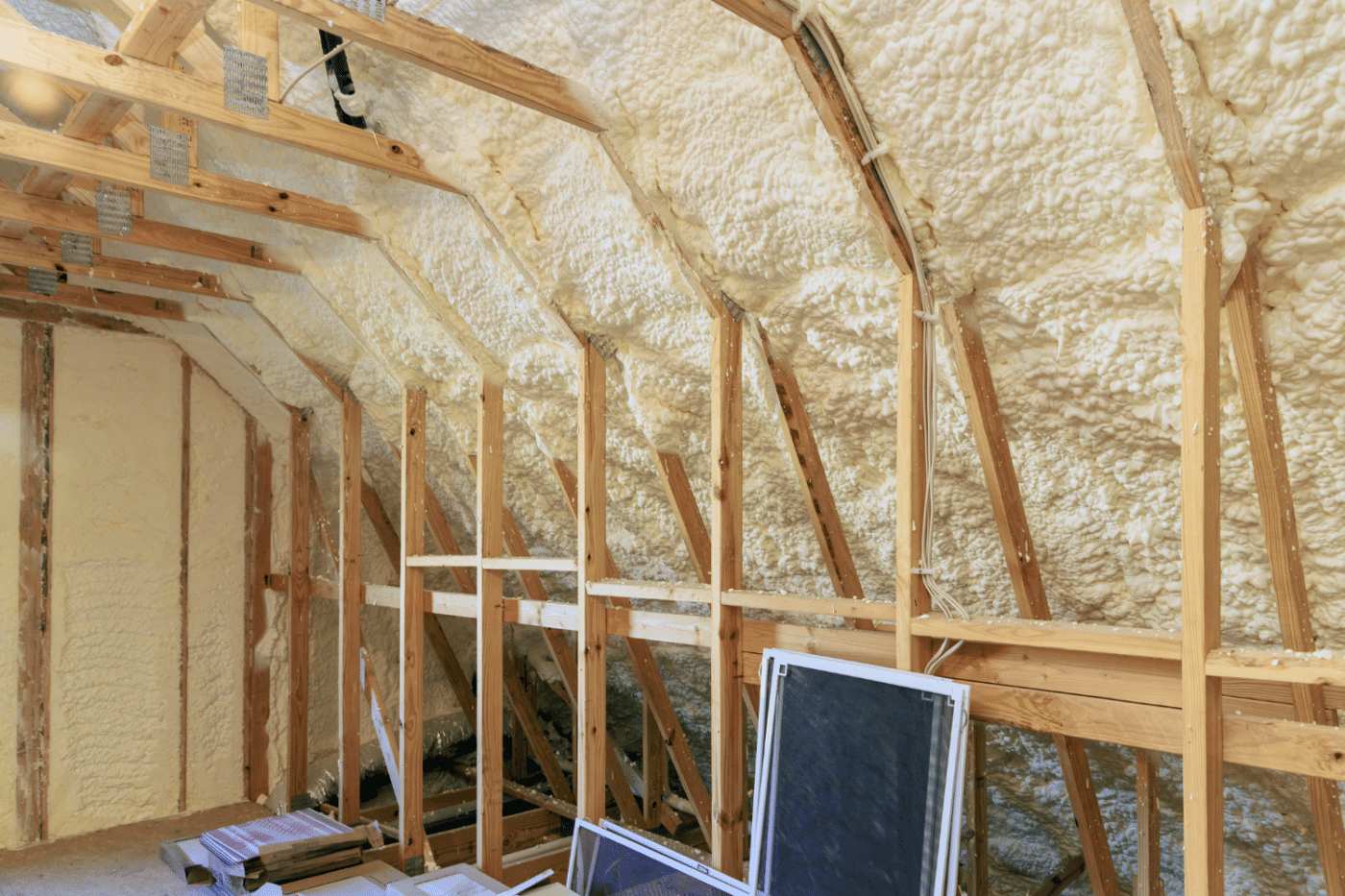
Open-cell spray foam, on the other hand, is a more budget-friendly option that provides similar insulation benefits of the closed-cell spray foam, but not quite as effectively. Unlike closed-cell, open-cell foam has a lower density, which allows it to expand more and fill larger spaces. Though it offers slightly less insulation and moisture control than the more premium closed-cell spray foam, open-cell spray foam works well for spaces where moisture isn’t a major concern.
Open-cell spray foam is a great option for garages, workshops, and other interior spaces that need to be insulated but aren’t as exposed to the elements. An added benefit of this type of insulation is its soundproofing qualities, which make it ideal for workshop environments where noise reduction is important.
Whether you choose closed-cell or open-cell, spray foam insulation is one of the most effective options to keep your portable structure dry, comfortable, and energy-efficient. Because of its ability to expand and seal gaps, it’s a standout choice for anyone looking for top-tier insulation with additional structural and noise cancellation benefits. Depending on your needs, closed-cell or open-cell spray foam insulation can help transform your shed, garage, cabin or barn into a more functional and inviting place.
3. Fiberglass Insulation
Fiberglass insulation is one of the most common and cost-effective insulation options out there. Known for its reliability, ease of installation, and affordability, fiberglass insulation comes in panels or rolls that fit between wall studs and ceiling joists. It’s a versatile option that’s good for anyone looking to insulate a shed, garage or workshop, offering solid temperature control without breaking the bank. Fiberglass is particularly effective for structures that don’t require intense climate control but still need a way to manage indoor temperatures and prevent drafts.
Fiberglass insulation comes in two main types: batts and rolls.
Fiberglass Batts
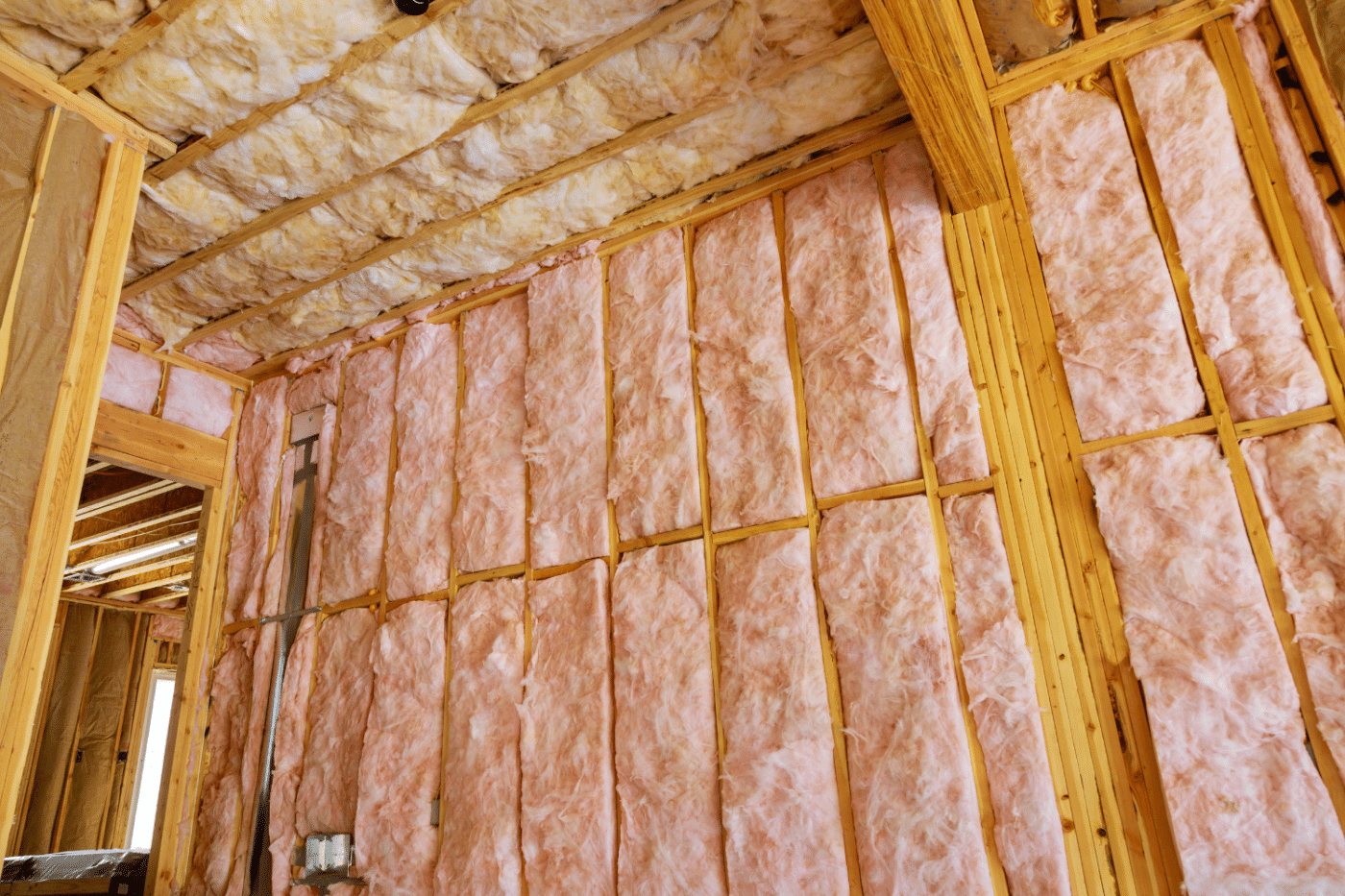
Fiberglass batts come in pre-cut panels, making them convenient to fit between the standard spaces of wall studs or ceiling joists. These batts provide consistent and predictable coverage, making insulation installation quick and easy – especially for DIY enthusiasts.
Fiberglass batt insulation can be a great, easily-available option for insulation small to mid-sized structures like garages, sheds or cabins. It is ideal for buildings that need a basic level of insulation to maintain a more comfortable environment for working, relaxing, and storing your items.
Fiberglass Rolls
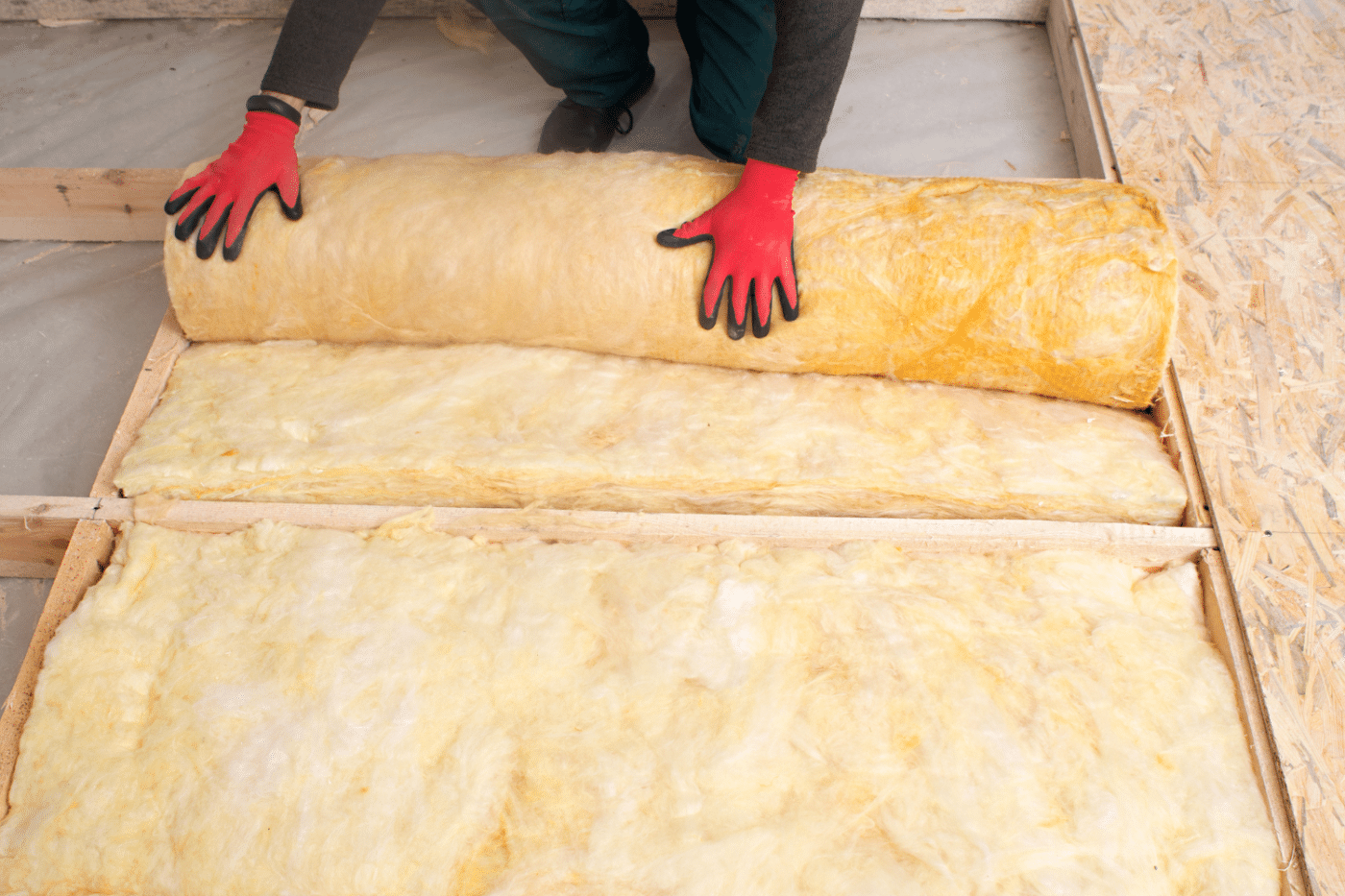
Fiberglass rolls work much the same way as fiberglass batts but are sold in long sheets that can be cut to fit specific dimensions. These rolls work especially well for bigger areas, such as larger barn ceilings or workshop walls, where more insulation flexibility is needed to cover larger, continuous spaces. They also work well for covering extended areas where seams between insulation panels need to be smaller to get increased insulation performance.
Overall, fiberglass insulation is a common, trusted, and affordable option for insulating a variety of buildings and structures. Whether you’re working with pre-cut batts or more flexible rolls, fiberglass is a great insulation material solution for anyone looking to improve temperature control, energy efficiency, and comfort with basic insulation.
4. Rigid Foam Insulation
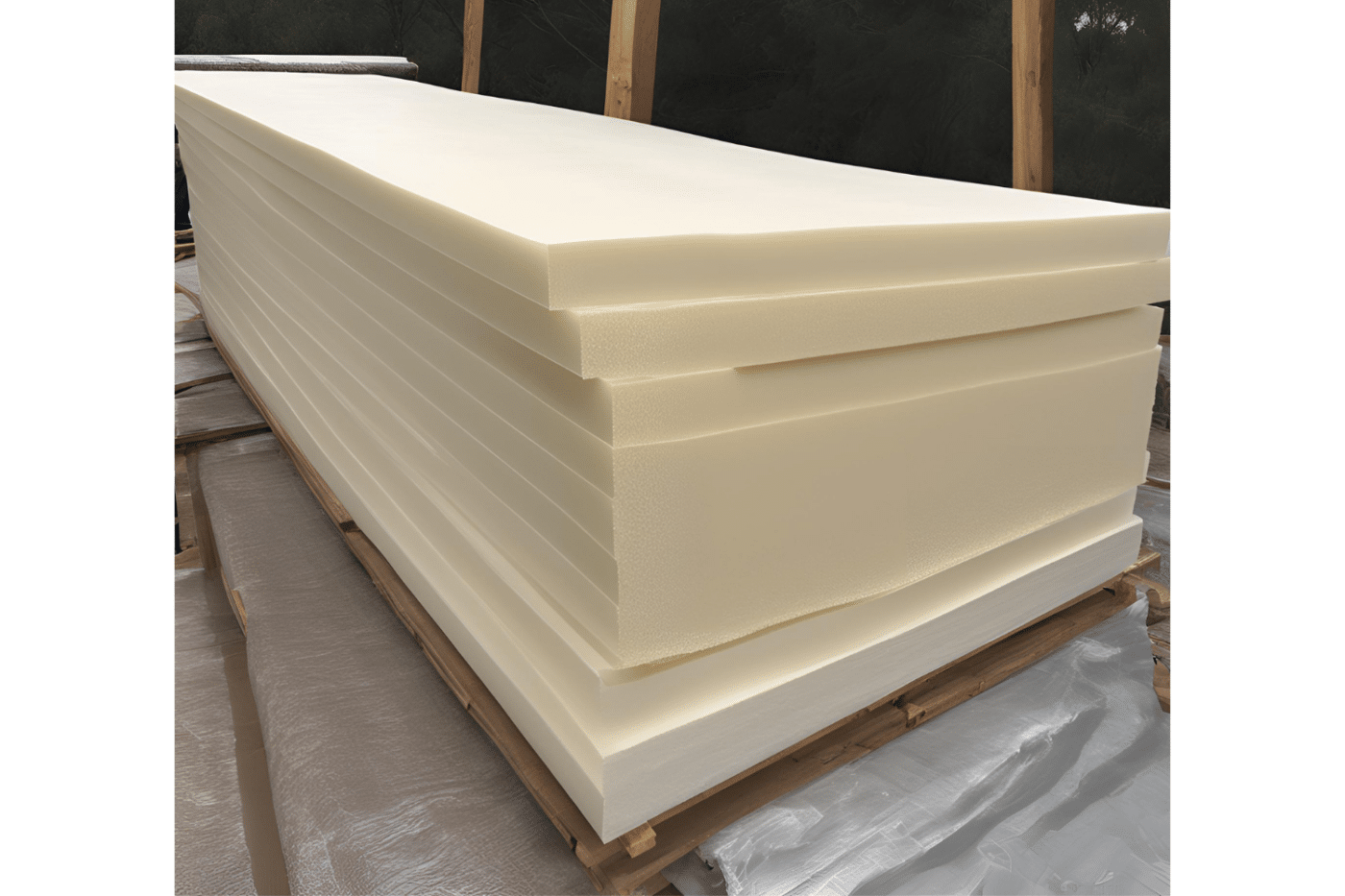
Rigid foam insulation (or just rigid insulation) is a durable, high-performance insulation option that provides excellent thermal insulation in a compact form. Rigid foam insulation is made from dense foam boards that offer serious insulating power with a high R-value per inch. This makes it ideal for structures where space is more limited but effective insulation is critical.
This type of insulation is also moisture-resistant which makes it especially effective for portable buildings that are more exposed to the elements. So whether you’re insulating a shed, garage, barn or workshop, rigid foam insulation can greatly help maintain a consistent indoor temperature while adding a layer of protection against bad weather.
Rigid insulation has a high R-value like spray foam insulation, however it achieves this in the opposite way. Instead of expanding to provide insulation and structural support, rigid foam insulation is compact and strong, providing maximum insulation efficiency with minimal thickness. Rigid foam also brings more structural strength to the walls or roof it’s added to in addition to insulation and water-resistance. Overall, rigid foam insulation can provide another great option for controlling the temperature of your portable structure and making sure it stays dry and comfortable throughout the year!
The Best Insulation for Each Type of Structure
The Best Insulation for Sheds
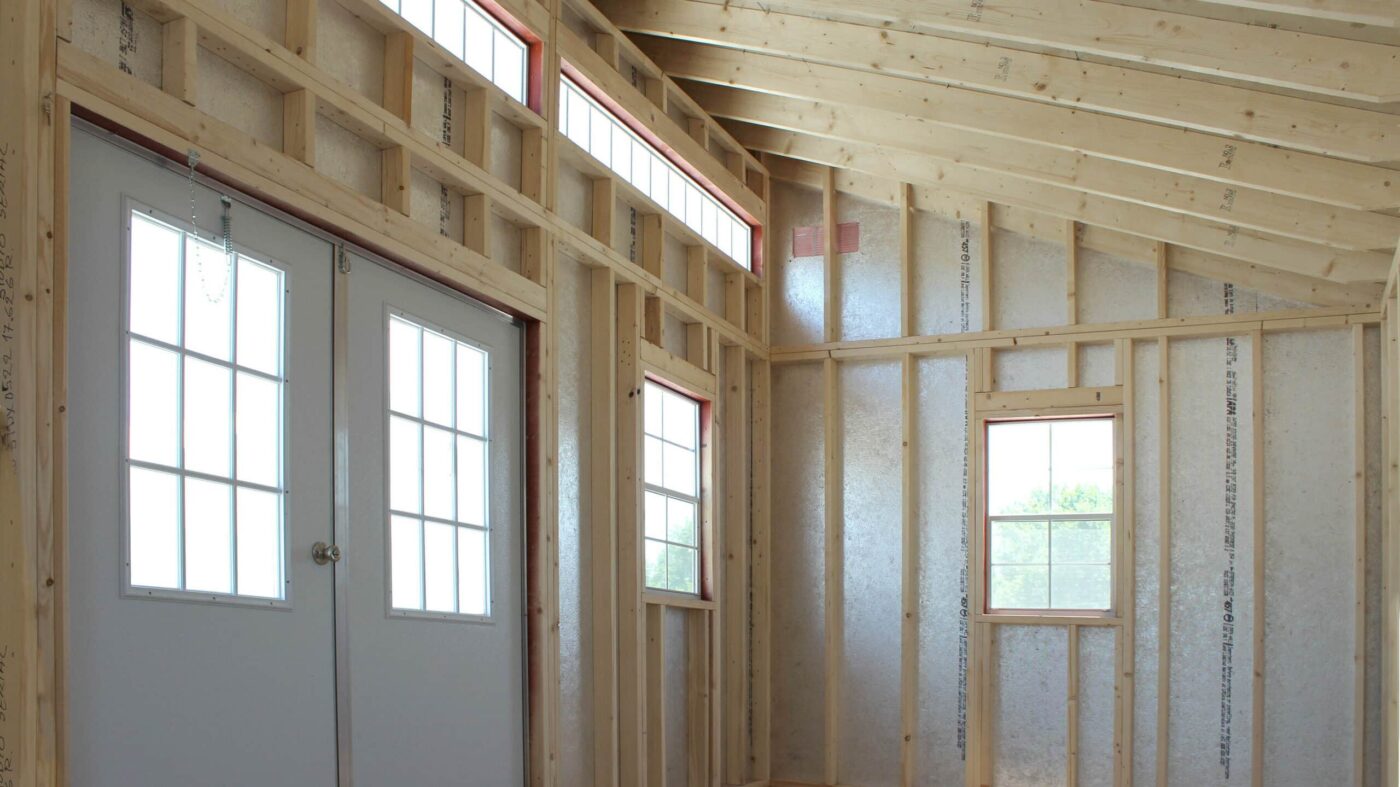
The best type of insulation for a shed depends heavily on how it is used:
Insulation for Specialty Sheds
Climate-controlled sheds may benefit from closed-cell spray foam or rigid foam insulation for the highest R-value and moisture control. Since specialty sheds are places where you will spend significant amounts of time working on a hobby or relaxing, you want the space to be as temperature-controlled and comfortable as possible! If you live in an area with less rain and less cold, radiant barrier insulation may be most of what you need to keep out the heat and make the space much more bearable.
Insulation for Storage Sheds
If you use your shed for basic storage needs, such as storing gardening and yard equipment, outdoor toys and games, or recreational equipment, your shed doesn’t need the same level of temperature regulation as if people would be inside. Therefore, a more cost-effective option that provides a more basic level of insulation would work – think just radiant barrier roof decking or fiberglass batts.
However, even though insulation isn’t quite as important for storage sheds, it’s still necessary to keep the items you store from melting, freezing, or generally being ruined by the climate.
The Best Insulation for Garages
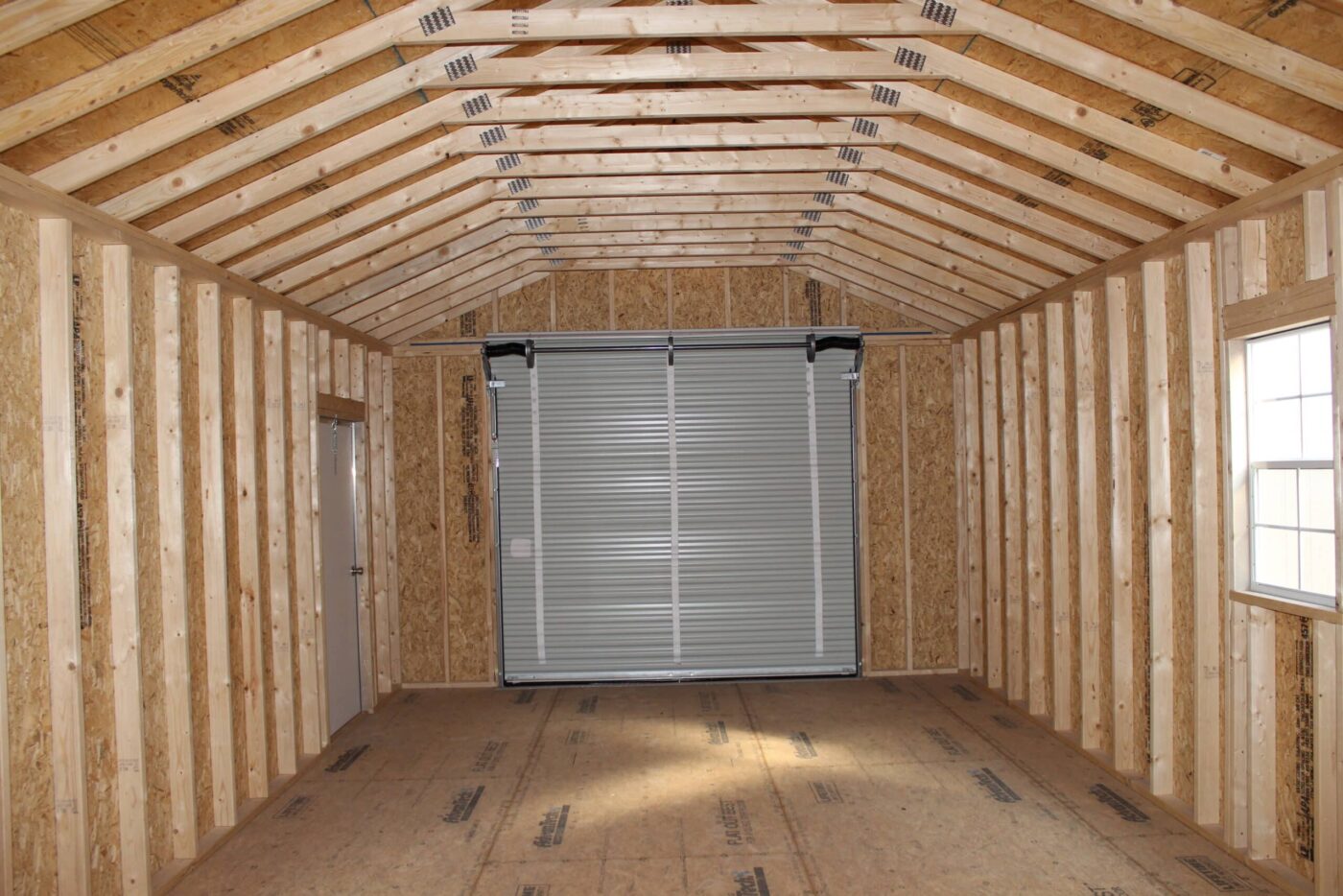
Garages can serve as multipurpose spaces, used for everything from vehicle storage to workshops, making proper insulation crucial for comfort and efficiency. Spray foam insulation is a great choice for garages to seal gaps and provide high thermal resistance for stable temperatures. For those on a budget, fiberglass batts or fiberglass rolls offer solid insulation performance and are easy to install in walls and ceilings. Rigid foam boards are also a great option, particularly for garage doors or areas needing extra moisture protection.
The Best Insulation for Cabins
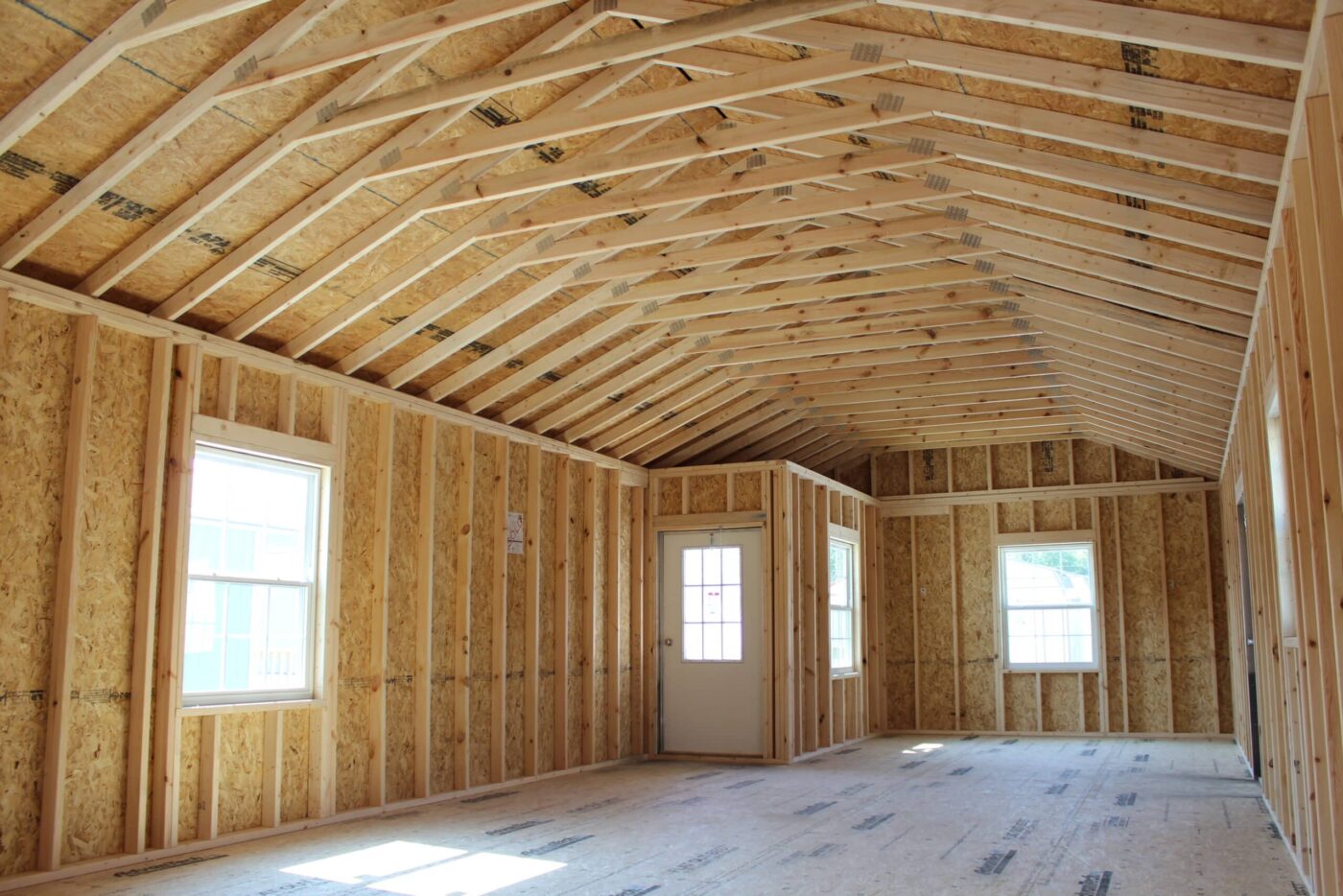
Cabins require insulation that ensures comfort and efficiency in a variety of weather conditions. Closed-cell spray foam is a top choice for cabins, providing excellent insulation, moisture control, and added structural strength. For more traditional builds or where cold and moisture aren’t as much of a concern, fiberglass insulation is also effective, offering a balance of affordability and reliability. For cabins in wetter or colder climates, rigid foam insulation can be most beneficial to install, since it offers high thermal resistance as well as significant protection against moisture. Depending on the climate and type of cabin you have, use the above information to make the best decision!
Ready to Get Your Structure Insulated? Use This Guide!
By following the tips in this guide, you’ll be well on your way to transforming your shed, garage, or cabin into a comfortable and energy-efficient space. Proper insulation can make a world of difference, helping you stay cool in the summer, warm in the winter, and keeping your valuable items protected from extreme temperatures and moisture. Whether you choose a higher-end insulation for efficiency or a more common type for affordability, the right insulation will improve your structure’s usability year-round. With the right choice, you’ll save on energy costs and create a space that you’ll truly enjoy spending time in.
To learn more about the structures Bald Eagle Barns offers and what we do to keep them cool, head over to our website and take a look at our shed, bard, and garage styles or try your hand at designing on in 3D! If you have any other questions, give us a call or contact us online today.
